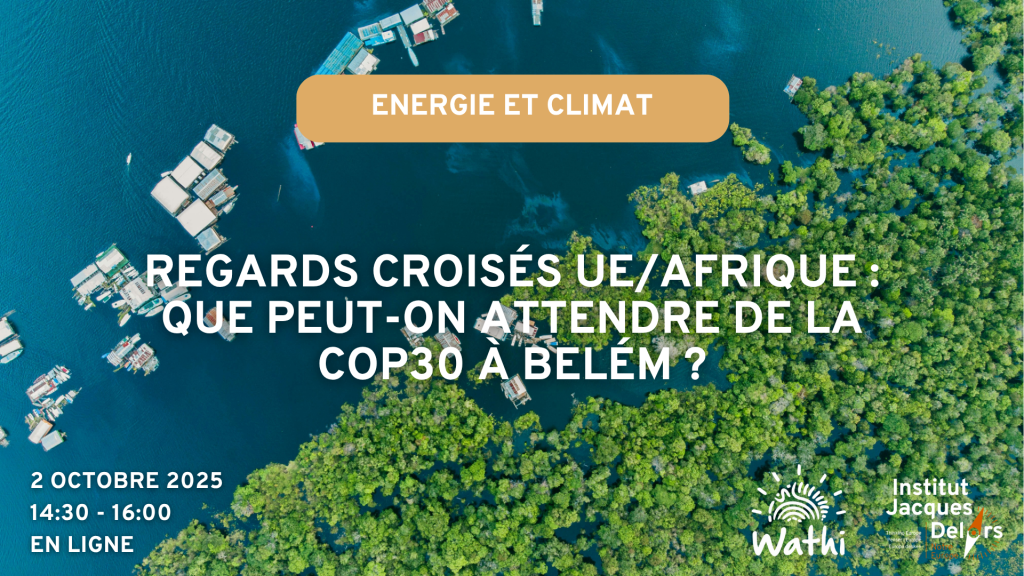[FR] EU/Africa perspectives: What can we expect from COP30 in Belém?

*This webinar is in French*
The 30th Conference of the Parties to the United Nations Framework Convention on Climate Change will be held next November in Belém, the capital of the Brazilian state of Pará. It follows on from the conference in Baku, which many participants considered disappointing. The decision on a new quantified collective goal for climate finance (NCQG), which falls well short of the demands of developing countries, whose ecological transition and responses to the current consequences of climate change depend on these funds from developed countries, is causing tensions that reflect and widen the divide between the global North and South, between those historically responsible for the environmental crisis and the nations on the front line of its negative effects. Faced with the global challenge of climate change, the ability of states to find consensus beyond geopolitical divisions and divergent national interests at COP30 will prove crucial. In Africa, the priorities are to finance a just transition, as the consequences of global warming are already severely affecting regional economies and populations – food insecurity, migration, water shortages and increasing vulnerability. At the European Union level, green policies are being held back by opposition from part of the public, a trend towards fiscal tightening and the rise of a conservative and reactionary right wing in many member states and in the European Parliament.
The President of the Belém Conference, André Corrêa do Lago, presented a broad agenda in light of the growing climate emergency. With the aim of accelerating the implementation of the Paris Agreement through a long cycle of negotiations, the priorities set are more ambitious Nationally Determined Contributions (NDCs), an acceleration of financial flows – both public and private – to reach the target of $1.3 trillion per year (Baku to Belém Roadmap to 1.3t) and to initiate a genuine transition away from fossil fuels. To what extent do these guidelines align with the aspirations of the EU and Africa? Does the historical debt of developed countries – including Europe – coupled with current geopolitical divisions lead to a necessary conflict of interests between the EU and Africa? In a context where UN diplomacy is struggling to convince in its ability to resolve conflicts, are global consensus still a credible response to the climate crisis?
To explore the many issues raised by the upcoming Belém Conference, the Jacques Delors Institute and the West African think tank WATHI are hosting a webinar to examine perspectives from both the European Union and Africa.


